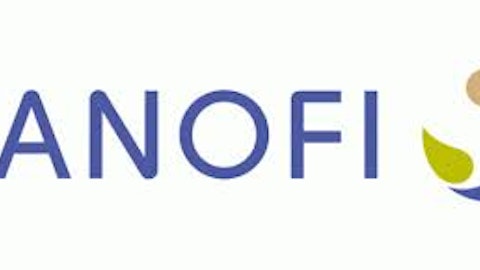Large conglomerates are generally low-beta blue chips that effectively reduce the risk attached to a portfolio. They record steady growth and often carry a modest yield, serving the purpose of income growth investing. But in the process of finding such low beta stocks, investors often lose out on growth prospects and end up buying overcrowded income stocks. So here are a few companies that offer a significant upside despite having a modest dividend yield.
Healthcare
Shares of Johnson & Johnson (NYSE:JNJ) have appreciated by an impressive 38% in the year to date while still offering a hefty dividend yield of 3.08%. Its forward price-to-earnings ratio of 14 times may suggest that its shares have reached a fair value, but I believe that it has plenty of upside.
This is because the healthcare behemoth just announced that it will acquire Aragon Pharmaceuticals for $650 million. The company operates in the research and development of prostate cancer drugs, and its ARN-509 drug directly competes with Medivation’s Xtandi and Dendreon’s Provenge. Even Johnson & Johnson (NYSE:JNJ)’s Zytiga is targeted towards prostate cancer, and the acquisition will certainly supplement Johnson’s research in the field.
After a series of failed trials in Alzheimer’s therapy, many pharmaceutical companies including Baxter International discontinued their research work in the field. Johnson & Johnson (NYSE:JNJ) reverted back to treating patients in initial phases of the disease, however, with an aim to restrict its growth. Since Alzheimer’s is a widespread disease with no cure, patients will be kept on a continuous medication regime. This could translate into a steady stream of income for Johnson & Johnson (NYSE:JNJ).
The company also recently announced the launch of its Invokana drug to battle diabetes. In my opinion, these positive catalysts should be enough to power up Johnson & Johnson (NYSE:JNJ) for the rest of the year. It was the fastest-growing pharmaceutical company last year, and I believe that it will top the list once again.
Consumer goods
Shares of Unilever plc (ADR) (NYSE:UL) carry a lucrative yield of 3.58%. Its shares have appreciated by 25% over the last year, yet they appear to be borderline undervalued on a forward earnings basis.
The company generates around 57% of its revenues from emerging markets, while Europe accounted for 27%. Since the real growth of personal and healthcare products lies in emerging markets, Unilever plc (ADR) (NYSE:UL) has been targeting Asian markets for the same reason.
To do that, Unilever recently announced that it will increase its stake in Indian-based Hindustan Unilever to 75%, at an estimated cost of $5.4 billion. As of now, Unilever plc (ADR) (NYSE:UL) owns a 52.8% stake in the joint venture, which altogether posted $3.8 billion in fiscal year 2011 revenues.
On top of that, Unilever plc (ADR) (NYSE:UL) also divested its Wish-Bone dressing business in January of this year. In a bid to divest its non-core food assets, the company sold off its frozen foods business to Hormel Foods Corporation (NYSE:HRL) for $700 million. While this was a positive boost to its cash, analysts feel that Unilever is not done with its restructuring.
Unilever plc (ADR) (NYSE:UL) has been shedding its non-core assets since 2011, and its management recently indicated that it can offload another $1 billion worth of its annual turnover. Such moves may shrink the company’s overall revenues, but the company can grow more rapidly and efficiently with its non-core segments off the table.




